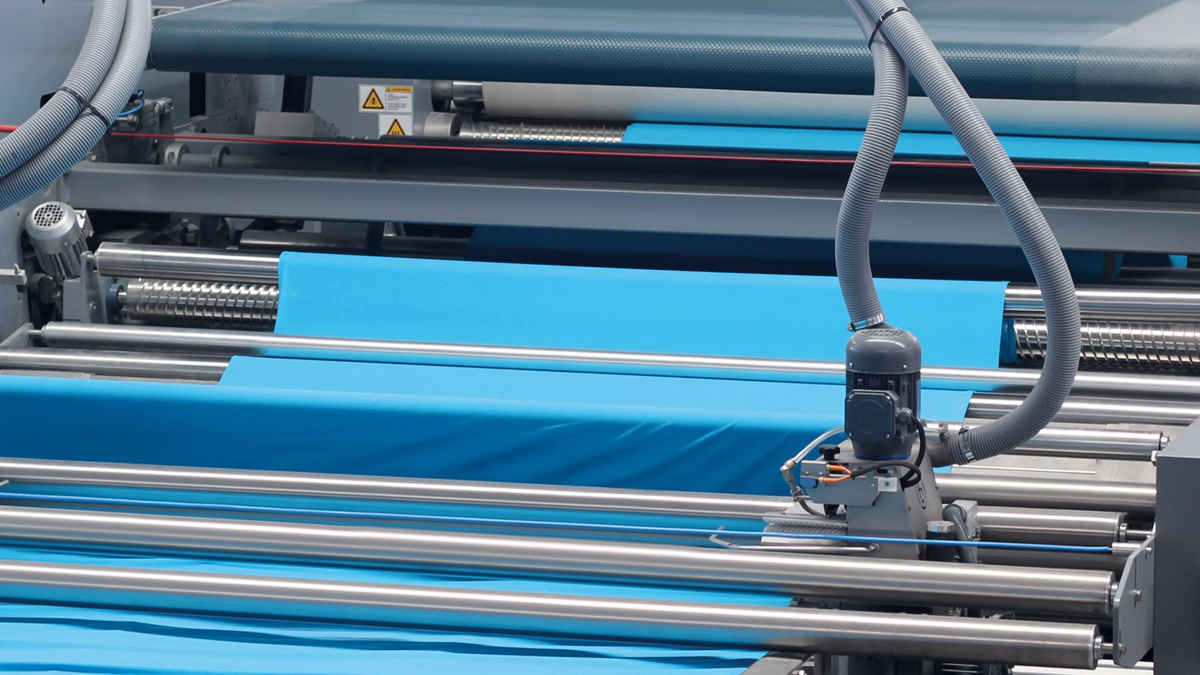The Turkish machinery industry has grown rapidly in export markets in recent years. European and Chinese markets are now added to the exports done to Asian and Middle Eastern markets. Textile machinery manufacturers are also growing steadily in this general structure. However, job losses due to the pandemic in all sectors were also seen in these areas. Turkish Textile machinery manufacturers taking protective measures from pandemic draw attention to a recovery in export markets as of May. All these data came out with a survey of the effects of the pandemic and the sector situation, conducted by TEMSAD among its members in May. The survey sheds light on the present and difficulties of the Turkish textile machinery industry.
According to the survey, the largest segment of the Turkish textile machinery sector is textile finishing and dyeing machines with a share of 45.7%. It is followed by manufacturers of spare parts for spinning, weaving and knitting machines with 13%. The responses show that Turkish machinery manufacturers are small and medium-sized enterprises (SMEs). 60.9% of companies are small-scale businesses with 10 to 49 staff. While the proportion of medium-sized manufacturers with 50 to 249 employees was 26.1%, the large-scale enterprise with over 250 employees was recorded as 2.2%.
45% of Turkish textile machinery manufacturers obtain more than 50% of their turnover from exports. The proportion of companies that never export was determined to be only 2.2%. This clearly shows that the Turkish textile machinery sector is export-oriented. Machinery manufacturers exported more than 50% of their products to Far East and Asian countries, while exports to Europe were 37%.
Precautions against pandemic are widely taken by Turkish textile machinery manufacturers
The survey shows that Turkish textile machinery manufacturers are taking protective measures quickly against the pandemic. The companies, which continue production, have implemented many measures in their factories and offices. While 97% of companies made the use of masks and gloves mandatory, 78% created a working order in line with the social distance rule in the workplace. 78% of the firms granted paid leave to their staff in the pandemic high-risk group (over 50 years old and those with chronic conditions).
While 76.1% of the machine manufacturers placed disinfectants at various points in the workplaces, a similar high rate of temperature measurement was also carried out at the entrance. While 21% of the companies digitized their meetings, only 2.2% remained closed until June 1.
The workers were not dismissed, but sent to paid leave
95.7% of the textile machinery manufacturers who participated in the survey announced that they did not dismiss the staff during the pandemic period. However, the rate of firms that gave paid leave to their staff during this period was 24.4%. While 17.8% of the companies made annual leave to their employees, 13.3% of them continued their normal course.
In this period, 47.8% of firms benefited from short-time working allowance, while 30.4% did not apply for this.
The main difficulty in the pandemic; decreasing orders
For Turkish textile machinery manufacturers, the main difficulty in the pandemic period was decreasing orders. 93.5% of the firms express the decrease in new orders. However, 33%companies that state that current orders are cancelled draw attention to the difficulty in this matter. The difficulty of transition to short-term working system was 60%, and the loss of attention and motivation in the staff were the other difficulties, with a rate of 48%.
Those who say that they have reduced their production in this challenging pandemic and market conditions were 82.6%, while 17.4% said they increased their production. Accordingly, the average contraction in production was calculated as 60%. Especially after the stagnation in March and April; it is seen that there has been an increase in order purchases both in Turkey and abroad. In the context of May, 23% of the firms announced that they received orders from domestic markets, 23.9% from abroad and 26.1% from both markets. On the other hand, 26.1% of companies did not receive a new order.
The ratio of the company, which noted that they export after pandemic, was 58%. In this process, Bangladesh, Egypt, Uzbekistan, Pakistan, India, Italy, Vietnam, Brazil and Morocco were the main export markets.

Normalization expectation is 2021
50% of the companies predict 2021 for the pandemic taken under control and for the start of normalization. Those who expected normalization in the fourth quarter of 2020 were 34.8%; while those waiting in the third quarter were 13%. Those who extended the normalization until 2022 had the lowest share with 2.2%.
The survey also reveals a contradictory situation. Although 76.1% of the participants stated that new trading and marketing methods will be adopted after the pandemic; the rate of those who do not actively use e-commerce in product marketing is at a very high level of 60.9%. Only 6.5% of the firms explain that they have participated in virtual fair applications and saw their benefits; while 58.7% does not participate in this application, but think that it can be useful.

